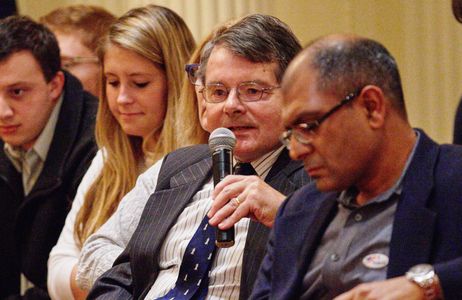Hare in Agence France-Presse: The Evolving Cuban Revolution
Amb. Paul Webster Hare, Senior Lecturer at the Frederick S. Pardee School of Global Studies at Boston University and former British ambassador to Cuba, discussed in a recent interview the changing relationship between the United States and Cuba.
Hare was quoted in a March 18, 2016 article in Agence France-Presse entitled “Raul Castro: The Revolutionary Who Made Peace.”
From the text of the article:
When Fidel Castro stepped down, “Venezuela and Chavez seemed likely to provide Cuba its lifeline for a long time. That’s all changed and so has the attitude of the US government under Obama,” said Paul Webster Hare, who teaches international relations at Boston University.
“Raul is happy to have the growing US tourism and remittances from Cuban Americans,” said Hare. “The blocks will be imposed on political grounds on the Cuban side. That would change the whole narrative of the Cuban Revolution, which Raul wants to preserve.”
“Raul’s main concern is not to endorse inequality like the Chinese have,” said Hare, a former British ambassador to Cuba. “He knows that the revolution would not survive long.”
Hare was the British ambassador to Cuba from 2001-04. He worked for 5 years in the private sector, in law and investment banking, before serving for 30 years in the British Diplomatic Service. Hare served overseas in Portugal, New York, at the UK Representation at the EU in Brussels, and in Venezuela as Deputy Head of Mission. He has written two policy briefs for Brookings: “The Odd Couple; The EU and Cuba 1996-2008,” and “US Public Diplomacy for Cuba: Why It’s Needed and How to Do It.” Learn more about him here.
